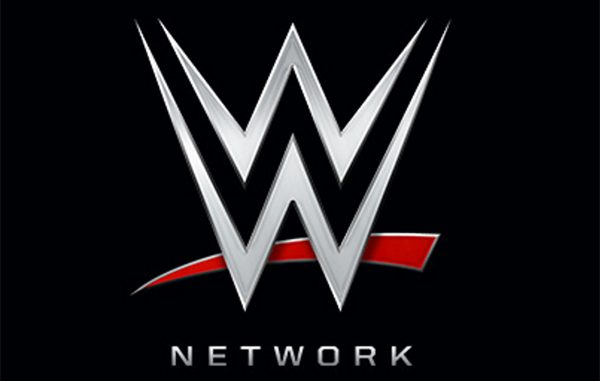
SPOTLIGHTED PODCAST ALERT (YOUR ARTICLE BEGINS A FEW INCHES DOWN)...
WWE The Day of
“Royal Rumble 2014”
When the WWE Network announced this episode was coming, a lot of people were very curious about what would be covered. To the disappointment of many, this does not touch upon the newsworthy events of the show including the last match of CM Punk or the non-use of Daniel Bryan in the Rumble despite his soaring popularity at the time. That said, what this episode of The Day Of does cover is done well and effectively.
This documentary is following Dave Batista as he makes his return to in-ring competition in 2014. Dave talks about how nervous he was as it had been four years since he competed in-ring. Batista recounts having a nightmare that there would be a similar mishap to the night he won his first Rumble in 2005. Highlights are shown of Vince blowing his quad as he gets into the ring is shown with strange music underscoring the scene. Dave felt like he didn’t give a good performance that night on top of the Vince injury debacle, and he hopes to do better for himself and the fans.
There’s an interesting scene showing the passage of time on Batista arriving at the arena and asking when they renamed the building with the person replying the old Mellon arena was demolished a few years prior. There are a few scenes of Batista reconnecting with old members of the locker room and crew, but also introducing himself to all the new people. One of the most interesting of these interactions is someone you never see in backstage stuff like this, The Great Khali. Khali was asking Dave about his movies and you could sense a friendship between the two. Batista said he feels like it is a completely different company from when he left in 2011.
Batista said that while he loved wrestling, he had goals he wanted to achieve outside of wrestling that he didn’t want to wait to pursue. Batista said that he had wrapped with the first Guardians of the Galaxy film and felt it was the time to do this. It would be interesting to see the reception that Batista’s return would have garnered if it happened after the release of the Guardians as opposed to before. Those movies seemed to have changed the tune on a lot of people that hated Batista during his original run.
Batista talks about getting his new gear for the event and how he couldn’t wear much of his old gear due to losing a fair amount of weight since his last run, but also wanting to wear a different cut of trunks. His normal seamstress didn’t have time to do new gear for him before the show, so his gear was being made the day of the Rumble. In a kind of peculiar way, highlights of the Daniel Bryan and Bray Wyatt match is intercut with Batista’s gear being sown and fitted. Dave’s anxiety leading up to the match and getting ready is pretty apparent. The zipper on Batista’s boot also breaks, so this Rumble is just this comedy of errors with Batista’s return gear. They are making this repair as you can hear the Rumble buzzer going off in the background. Batista was worried that with all of these issues with his gear he wasn’t warmed up properly. Batista was very worried about aggravating an achilles injury he was dealing with.
As the documentary covers the Rumble match they do not shy away from the multitude of Daniel Bryan chants nor the negative reaction to Rey Mysterio coming out at number 30. The CM Punk elimination is focused on as opposed to ignored, which was interesting.
Batista does talk about how he wishes the crowd was more supportive that night and that the crowd booing Rey Mysterio angered him off. Batista said he was annoyed that people felt he didn’t deserve it, but he understood that Bryan had been in the company every day the last four years and he wasn’t.
This is a pretty candid look at Batista’s return and it felt like he was being very honest. If you went into this thinking of breaking news or opinions on Daniel Bryan not being included or this being CM Punk’s last match, then you were disappointed as neither were touched upon. But this was true to the style of this series on the Network.
WWE 24
“Booker T: Sentenced to Greatness”
February is Black History Month and the WWE Network has a section dedicated to both past and current superstars of color. I hadn’t remembered watching this Booker T documentary when it originally aired in 2015. The first thing that surprised me was seeing that the documentary is only thirty minutes, which seemed very short considering Booker T’s career and life.
Some brief childhood anecdotes are shared by both his sisters, but also his brother Lash, best known to wrestling fans as Stevie Ray. Booker T shows his childhood home in Houston, Texas and notes how much his mother sacrificed to ensure they had a roof over their head. Booker notes that he and Stevie Ray slept in the same bed for the first fourteen years of his life.
The family discusses how their mother died from a complication in surgery when Booker was just thirteen. This traumatic event sent Booker down the wrong path in his young life which lead to him being arrested for aggravated burglary. Booker T compared his life at the time to a whirlwind and said he just couldn’t get out and this would wind Booker up in jail. Stevie Ray said that the main positive thing that they would talk about when Booker was in jail was professional wrestling. All of this is covered in five minutes in the documentary and is not explored in much detail. It is lean with just the facts and not much else. This could have easily been expanded as it is a fascinating and inspiring story.
The documentary features a reunion with Booker T and Bruce Gasarch, whom Booker cites as being one of the most important people in giving him an opportunity after jail. Booker said as they were working for Gasarch they found out that Ivan Putski was going to open a wrestling school in the area. Gasarch said he could tell that Booker and Lash were serious so he paid the money for them to get into wrestling school.
The G.I. Bro gimmick is briefly talked about before talking about how Booker tagged along with Lash as he had a tryout with the Global Wrestling Federation in Dallas and that they both ended up getting booked. GWF was only ever acknowledged as Global during this, which is curious as it makes one wonder if the term “Wrestling Federation” is verboten in the WWE vernacular. Both note how they were yelled awful things as they wrestled under the name The Ebony Experience. Booker notes that after he did the Spin-a-Roonie the crowd cheered them. Stevie Ray notes that Mark Madden gave the Spin-a-Roonie its name in WCW. Booker says the origins of the Spin-a-Roonie is from his breaking dancing as a kid. For a 30 minute documentary, they spend almost 2 minutes talking about the Spin-a-Roonie.
Booker and Stevie Ray going to WCW and becoming Harlem Heat was the next topic discussed. Stevie Ray says that the name was Harlem Heat instead of Houston Heat due to a more negative connotation associated with Harlem. There is a definite implication at the racial undertones but neither state such explicitly. The documentary does imply things vaguely at multiple points in the documentary over a few topics that make you scratch your head a bit. One of these includes an implication that Booker needed to provide for more than himself despite not ever stating he had kids or a family at the time. And then at the last minute, the documentary notes he has a 30-year-old son. Both Stevie Ray and Booker maintain their association with Sheri Martel as their manager was a key to their success. Their tag run in WCW is covered in less than two minutes, which is a shame considering the great run they had with 10 championship reigns. Harlem Heat is one of the most underrated tag teams and part of that was due to tag team wrestling not being as in-vogue as it had been just a few years earlier.
Sharmell is then featured as she jumps into WCW to be the Nitro Girl named Storm. They got to know each other as the two worked on Ready to Rumble. Booker believes it was destiny for her to work for the company so they could get married.
Booker notes that he felt that no wrestlers of color were allowed to achieve much in WCW at the time so he didn’t expect to get his World Championship reign in 2000 and that it was thrilling for him. Booker said he wasn’t as sad at the end of WCW as most because he knew bigger and better things were still on the horizon. Booker said he did have some trepidations on how he would fit in at WWE.
Booker talks about the wrestling training school that he opened with his brother, but that this caused major tension in the family and led to them becoming estranged for nearly five years. Booker’s eventual Hall of Fame induction is what led to them reconciling and Stevie Ray would be the one to induct Booker.
Booker said that the biggest change he had to make in WWE was that he had to focus on his character as opposed to WCW where that wasn’t emphasized as much. Highlights of the Austin/Booker grocery store segment are shown and is all that is shown of his early WWE run until his tag team with Goldust in 2002. Booker says Jim Ross is the one that encouraged Booker to start talking publicly about his troubles with the law early in his life. The documentary ignores the racist comments that Triple H made in promos leading to their match at WrestleMania 19. This match is depicted as the pinnacle of Booker’s career which sure seems like some classic WWE-style rewriting of history. Especially considering the awful nature of the finish of that match which makes Booker looks pathetic compared to Triple H deep in his reign of terror.
Booker admits that after he got married to Sharmell in 2005 he was less interested in wrestling and more interested in staying at home. WWE’s reaction to this was to get Sharmell to come in and be Booker’s manager on the road and television. Their run as King Booker and Queen Sharmell is very special to them as they talk so lovingly about that era and the great time they were having.
Booker’s career post the King gimmick is completely ignored and the documentary jumps to Booker going into the WWE Hall of Fame. Stevie Ray says doing the induction was incredibly touching for him and gave him some validation for his career due to the reaction he received giving Booker’s induction speech. This documentary was completed before Harlem Heat would go in as a team in 2019.
This documentary was fine for being a very abridged look at Booker T’s life and career. Booker has led such a fascinating life that it feels like the short run time did his story and career a disservice. Booker is the most decorated titleholder in the history of WCW and had a good career after that. Hopefully, something like an episode of the new Icons series can give Booker T the justice he deserves.
NOW CHECK OUT PREVIOUS WWE NETWORK REVIEWS: WWE NETWORK REVIEWS: WWE Icons featuring Yokozuna




Leave a Reply
You must be logged in to post a comment.